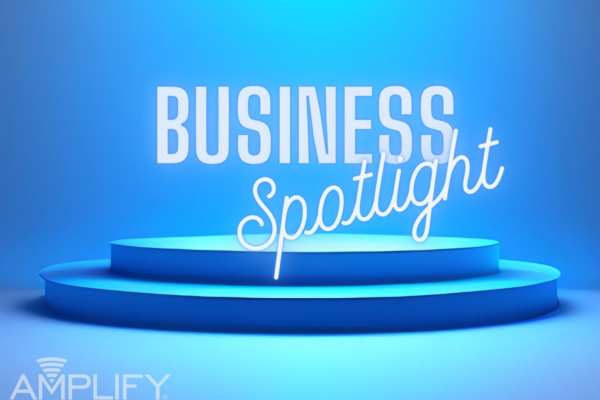
9 Types of Commercial Loans for Your Business
As the saying goes–sometimes you have to spend money to make money. But not everyone is flush with the cash they need to take their business to a higher level!
There are several unique commercial loans that business owners can take advantage of. Whether you’re looking to purchase office space or need funds for that next phase in your business strategy, here are your main options.
1. Commercial Real Estate Loan
As the name implies, a commercial real estate loan is used to purchase commercial property. You can use these commercial mortgage loans to buy real estate as business space or to buy properties as an investment.
Under the umbrella of commercial real estate loans, you’ll find even more sub-types, including permanent loans, which act as a first mortgage on a commercial property. Others, like blanket loans, are designed to cover the purchase of multiple properties. Local commercial lenders can work with you to come up with a loan that fits your unique business needs.
2. Business Line of Credit
A business line of credit is a type of commercial loan that shares many characteristics of a credit card. Instead of getting your funds in one upfront lump sum, you’ll qualify for a maximum amount. You can then draw funds from your line of credit as you need them. The best part about this is that you pay interest only on what you use— not for the maximum amount.
This makes a line of credit great for businesses who may occasionally need funds to cover operating expenses or to purchase equipment as you go.
3. Equipment Financing
Your line of business may require that you own large pieces of equipment to produce your products or conduct your service. Equipment can come with a hefty price tag that you can’t cover with cash on hand.
Instead of buying your equipment outright, you can finance it through a loan. This means that you can pay for it over time— with interest payments included, of course. Many times, the equipment itself will serve as collateral for the loan, which makes this type of loan easier to qualify for than others. However, if you default, the bank can seize your equipment.
4. Term Loan
A business term loan is a flexible loan with a consistent repayment schedule. Some general characteristics of this type of loan include:
- A set loan term in which you must repay what you borrowed, which is usually one to five years but can be longer or shorter
- A fixed or variable interest rate
- Few restrictions on what the money can be used for
Because you can use the money however you see fit in your business, a term loan is great if you have different areas of expenses to cover.
5. Commercial Construction Loans
A commercial construction loan is similar to a real estate mortgage. The difference is that a construction loan is designed to cover designing and building a structure that doesn’t exist yet. So whether you have a vision for a brand new owner-occupied office space, a business center, or a towering multi-family real estate investment, a commercial construction loan would be the product to make it happen from scratch.
6. Commercial Auto Loan
Some businesses need vehicles for business-related operations. These can be purchased with a commercial auto loan, which is similar to a consumer auto loan. Because vehicles depreciate so quickly, many financial institutions will only offer financing on newer vehicles, which is important to remember when building your fleet.
Also keep in mind that this type of loan is best for average vehicles like cars, vans, or pick-up trucks. If you need financing for a larger vehicle, such as a semi-truck, equipment financing may be the better option.
7. SBA Loan
The U.S. Small Business Administration (SBA) has several loan programs that small business owners can apply for. Each SBA program comes with its own set of intended uses and eligibility requirements.
- SBA 7(a) loans: The 7(a) is the SBA’s most common loan program and can be used for anything from real estate, short- and long-term working capital, refinancing business debt, and supplies.
- SBA 504 loans: 504 loans are designed for businesses that are purchasing major fixed assets, such as an office building, that will help grow their business.
- Microloans: These loans are smaller with a maximum size of $50,000 and are meant to help small businesses start up and expand.
SBA loans aren’t actually funded by the SBA themselves. They guarantee the loan; the funds are provided through other parties. For example, you would apply for a 7(a) loan through your local lender who participates in the program, and the SBA would back the loan. A certified development company would provide a SBA-backed 504 loan, and SBA microloans are funded through intermediary lenders that partner with the SBA.
8. Bridge Loans
Bridge loans are designed to fill the gap between what a business needs at the moment and a longer-term financing solution. These shorter-term loans have higher interest rates than permanent loans, but allow businesses to meet immediate obligations by providing a temporary cash flow.
This type of loan is most often used in commercial real estate.
9. Inventory Financing
Sometimes, businesses need to purchase products upfront that will not be sold until later. For example, if you have a clothing line, you may purchase materials upfront in bulk, even if your designs won’t hit the shelves all at once. Inventory financing is designed to help cover these costs. The loan is backed by the inventory as collateral.
Invoice financing can be a risky endeavor for financial institutions, which is why these are usually approved on a case-by-case basis.
Find the Right Commercial Loans for You
This only scratches the surface of the financing options available to small businesses. Before you make a decision, make sure to thoroughly research the specifics of a loan type. By having a good understanding of what your business needs and working with a reputable, community-oriented lender, you can get the funds to keep your business flourishing.
Looking for a Commercial Loan?
Amplify’s commercial lending team can help you find the right loan for your business!

